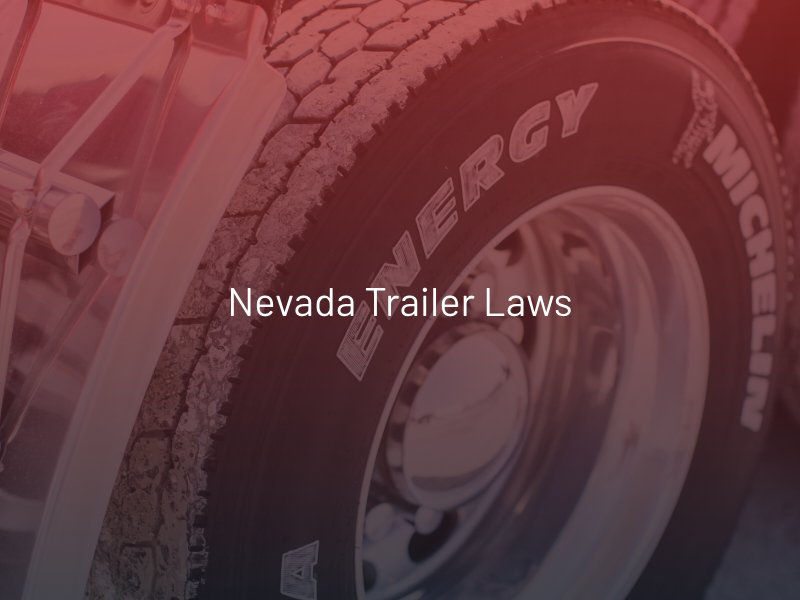Nevada Trailer Laws
Towing a trailer in Nevada comes with the legal responsibility to ensure the equipment is safe. If a driver fails to do so, leading to an accident, their negligence could make them liable for any resulting damages. This makes it critical to understand Nevada’s laws governing safety and installation requirements for trailers.

Registration and Title Requirements
The State of Nevada requires all utility and travel trailers to be properly registered and titled before being operated on public streets. For trailers under 1,000 pounds, a small license plate will be issued to fix to the trailer that must have up-to-date registration. Towing a trailer that is not titled or registered can result in a traffic citation, and you will not be allowed to use it until you do so. If you find yourself in need of assistance with trailer regulations or any related accidents, seeking personal injury legal representation in Las Vegas can help ensure your rights are protected.
Trailer Brake Requirements
Under Nevada Revised Statutes (NRS) 484.593, to operate any trailer, semitrailer, or pole trailer manufactured after July 1, 1975, with a gross weight of 1,500 pounds or more, all wheels must be equipped with service brakes. The brakes acting on all wheels must have the ability to remain applied for at least 15 minutes in the event of the trailer breaking away from the towing vehicle.
Trailers, semi-trailers, house trailers, or pole trailers, manufactured before July 1, 1975, and weighing less than 3,000 lbs. do not need brakes on all wheels.
All trailers weighing more than 3,000 pounds must be equipped with parking brakes adequate to hold the trailer on any grade on which it is operated and in all conditions.
Trailer Lighting and Signal Requirements
All trailers must have two tail lamps on the back that omit a red light and are visible from at least 500 feet from the rear. The tail lamps must be mounted between 15 to 72 inches from the ground, at the same level, and widely spaced.
Trailers also have to have at least two stop lamps that activate when brakes are applied. Stop lamps need to omit a red, amber, or yellow light and be bright enough to be visible from 300 feet to the rear in daylight.
Additionally, turn signal lights are required on most trailers built in the last 50 years. Two or more red reflectors should also be mounted on the back of a trailer, either as part of the tail lamps or separately. (NRS 484D.115, 484D.125, 484D.130, 484D.120)
Trailer Dimensions
Nevada does not specify how long a trailer can be but does limit the combined length with the towing vehicle to 70 feet. This length excludes safety and energy conservation devices. A trailer also cannot exceed 8.5 feet in width and a height of 14 feet. These regulations exclude mirrors, lights, and other devices required for safety.
Trailer Accident Liability in Nevada
There are no special insurance requirements for trailers in Nevada. However, if you are planning on towing one, it is in your best interests to confirm that your auto insurance company will cover any damage it can potentially cause. Drivers who lack experience or fail to follow the state’s rules and regulations regarding trailer safety can be liable for damages if they cause an auto accident.
If you or a loved one has been involved in an accident with a trailer, contact a Las Vegas truck accident lawyer.
Harris & Harris personal injury attorneys in Las Vegas offer free consultations; call (702) 384-1414 today.